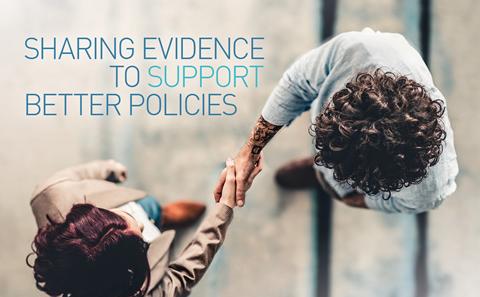
Policy Projects
Learn about PPS led current collaborative projects between the University of Southampton researchers and UK Government and Parliament.
12 October 2023
Adam Meylan-Stevenson (Our Policy Associate)

Halfway through my PhD, I realised I had a growing interest in a career in public policy. So, I decided to pursue an internship in the Civil Service and I was thrilled to accept a position with the Open Innovation Team (OIT). This experience allowed me to apply my academic research to the real world and learn more about policymaking.
The OIT is a unique cross-government unit that operates like an in-house consultancy for the Civil Service. The team takes on commissions from departments within the Government on the full spectrum of policy work, including health, education, justice, and foreign policy amongst many others. The opportunity to take on multiple policy projects within my internship was a key motivation for me. I have a rough idea that I’d like to work in the Ministry of Justice, but I recognised that being involved in multiple policy spheres whilst undertaking the internship would be valuable.
I worked on two projects. My primary assignment was to explore the development of evidence institutes within the United Kingdom, the United States, Canada, and Australia. Evidence institutes are organisations that focus on the collection, synthesis, analysis, and dissemination of evidence-related policy. The United Kingdom’s most famous is the National Institute for Health and Care Excellence, a.k.a NICE. Such organisations serve as a centralised hub for gathering and evaluating research to support evidence-based policymaking. The primary goal of an evidence institute is to provide accurate, and up-to-date evidence to inform policy development, program implementation, and evaluation.
This work was commissioned by the Paul Ramsay Foundation, an Australian evidence institute. The project aimed to assess what strategies evidence institutes should employ to implement policy change. It also assessed the barriers to effectively executing policy, and what can be done to overcome such obstacles. The importance of this work is that evidence institutes often struggle to be effective. Budget constraints, the demands of producing regular high-quality research, and a lack of receptiveness from decision-makers can obstruct their impact. Our aim was to identify such barriers and make recommendations for evidence institutes to overcome them.
We conducted this research by first conducting a policy synthesis of the literature on policy-making in the countries we studied. Second, the work involved interviewing academic experts, including 2019 Nobel Prize winner Abhijit Banerjee, and policy officials from the four relevant countries to gain their insights into the topic. While I have returned to my studies, a report summarising our findings and key recommendations is being finalised. The report will become publicly available in October. This work was interesting and gave me useful insight into policy development. I believe that the insights from our research will contribute to better policy-making in the countries in question, and to wider debates on how best to implement policy. I am confident that the report will offer valuable guidance to policymakers and academics alike.
The second project I undertook was commissioned by the Ministry of Justice and investigated how technology ought to be utilised in prisons. Technology may offer many benefits to people in prisons, but its implementation should be carefully considered. The benefits might include allowing more effective prison rehabilitation, allowing prisoners to study for educational qualifications and for the safe and secure running of prisons. I can’t detail my involvement due to signing an NDA, but have a look at this publicly available Ministry of Justice report if you’re interested in this field of work.
The experience allowed me to develop the skills I have honed as a Policy Associate with PPS, and I was pleasantly surprised at how well that experience had prepared me for government work. I am eager to use what I have learned to help shape the future of public policy. I am very grateful to PPS for funding my placement within the OIT. If you are considering a career outside of academia or are simply interested in gaining government experience, I strongly recommend a Civil Service internship. A PhD is undoubtedly a long and difficult journey, but taking three months out to work in the Civil Service was a blessing. It certainly affirmed my belief that I want to pursue a career in policy-making.

Learn about PPS led current collaborative projects between the University of Southampton researchers and UK Government and Parliament.

Click here to listen to our Policy Podcast series. In each episode we speak to UoS researchers and experts, about their experiences confronting critical issues in the domestic and foreign policies.

Guidance on the many channels available to researchers to engage with policymakers.

Guidance on things to consider in the science to policy process and useful tips in planning and costing your impact activities.